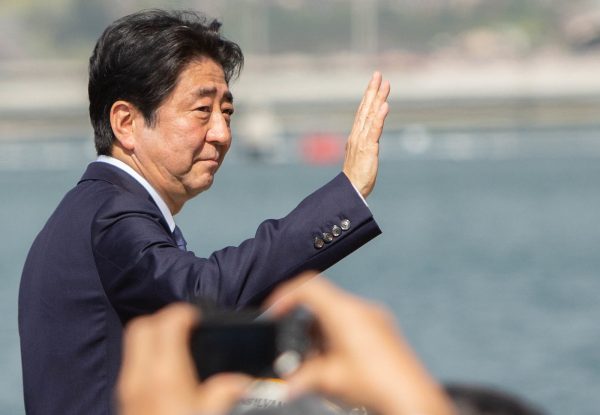
Preparations for former Prime Minister Abe Shinzo’s state funeral, hosted by the Japanese government, are in progress. The Sankei News, a conservative media outlet, reported that the Kishida government is expecting to accommodate approximately 6,000 people at Nippon Budokan, a multi-purpose arena used as a venue for everything from musical performances to sports events. The scale and location of the state funeral is likely to be similar to that of former Prime Minister Yoshida Shigeru’s – the last state funeral to be carried out, in 1967.
The state funeral has a domestic side providing an opportunity for the nation to mourn the death and commemorate the legacy of Abe as a whole. But it also has a diplomatic aspect to it. Reports suggest that Prime Minister Kishida Fumio is using the state funeral as an opportunity to invite world leaders, leveraging Abe’s legacy of shuttle diplomacy throughout the world. Kishida may be motivated to use it as an opportunity for “funeral diplomacy,” giving him a chance to converse with leaders from around the world, who are all coming to Japan at once to pay their respects to the late Abe.
On July 22, the Ministry of Foreign Affairs released a press statement announcing the establishment of the “Secretariat for the Preparation of the State Funeral of the Late Prime Minister Abe Shinzo,” a department within the ministry that would “ensure flawless reception, etc, of attendees from overseas at the state funeral.”
It seems that the newly established secretariat is doing its job in inviting famed current and previous heads of states to the state funeral. From Europe there have been reports that French President Emmanuel Macron and former German Chancellor Angela Merkel were considering attending Abe’s funeral. From the United States, Japan’s closest ally, former U.S. President Barack Obama and current Vice President Kamala Harris are adjusting their schedules to attend.
Although in one sense the state funeral is being organized smoothly, taking into consideration that world leaders are expected to come, there is a problem: The Japanese public is increasingly souring on the idea.
In the immediate aftermath of the government’s decision to host a state funeral, polls indicated that the number of those who approved and disapproved were equally divided. Now, people who oppose the hosting of a state funeral are starting to form a clear majority. A poll from Kyodo news on July 31 detailed that 53.3 percent of the public disapproved of the state funeral, while 45.1 percent approved. Another poll from NHK updated on August 8 revealed that the number of people who disapproved of the state funeral amounted to 50 percent, while 36 percent approved.
What is also worrisome for Kishida, who decided to host the state funeral partly to keep a grip on his conservative base – is that the moderate and liberal wings of his Liberal Democratic Party are starting to show their discomfort about his decision. According to JNN, about 30 percent of LDP-affiliated voters do not approve of the state funeral, along with the vast majority of opposition party supporters, implying that a bipartisan front of opposition is starting to unfold.
Two factors help explain the shift in the public’s stance toward the state funeral in a relatively short time. One is the fact that the public is not fully convinced by the case that Kishida is trying to make. To explain his decision, Kishida alluded to the section of the Cabinet Office Establishment law. He cited part of the law stating that the cabinet office has the authority to made decisions on “matters related to state ceremonies and affairs concerning ceremonies and events conducted by the Cabinet” as the legal basis for the state funeral.
Nevertheless, the case that a state funeral – which ought to include the conditions when it will be held, along with other specific instructions – is included by the term “state ceremonies” seems like a stretch, a concern delivered by the Tokyo Lawyers Association. Also, the fact that Kishida made his decision unilaterally, bypassing deliberation in Japan’s Diet, may have left the majority of the public unconvinced. Hence, the fragile legal basis and lack of persuasion from the government may have left the public disenchanted with Kishida.
Another factor could be attributed to the growing opposition to the Kishida government in general. This creates a mood where the public is basically against most of Kishida’s policies, including the state funeral. As a result of the record number of COVID-19 cases every day, and the media’s extensive reporting on the LDP’s dubious relationship with the Unification Church, Kishida’s approval rating has fallen to its lowest level since he assumed the premiership. The public’s deep disappointment in Kishida’s handling of these issues was reinforced by the fact that Kishida’s rating did not tick up after he reshuffled his cabinet. Consequently, under this environment it may be difficult for Kishida to turn the public to his side on Abe’s state funeral, an issue that was already controversial beforehand.
In the final month leading up to Abe’s state funeral on September 27, Kishida’s mission should be to engage in a dialogue with the opposition parties, and, more importantly, the general public. Otherwise, he might face an embarrassing situation where protesters surround the Nippon Budokan in the presence of international leaders. However, time is limited, and given the difficulties that Kishida is facing within domestic politics, the public’s increasingly negative view of the state funeral may exacerbate his woes even more.
Preparation for Abe’s State Funeral Proceeds Amid Growing Public Opposition
Source: Frappler

0 Comments